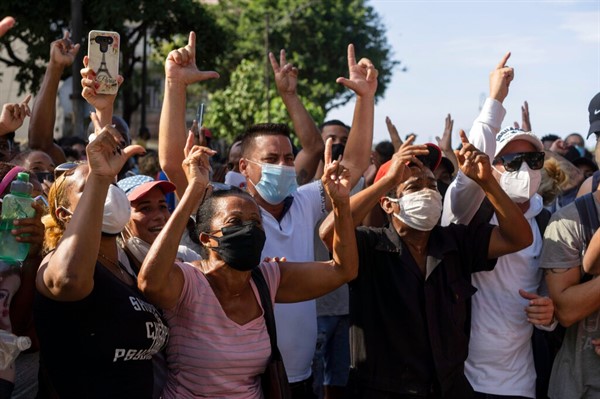In mid-February, a court in Holguin, Cuba, about 500 miles east of Havana, handed down sentences of up to 20 years in prison to 20 people convicted of sedition the previous month. Their crime, and that of the hundreds of others like them still awaiting verdicts elsewhere, was to have participated in widespread protests last summer, some peaceful but some violent, that took the Cuban government—and the world—by surprise.
As shocking as those protests were, they didn’t come out of the blue. Right now, Cubans are enduring the worst economic and social crisis since the 1990s, when the collapse of the Soviet Union plunged the island into a decade-long depression. Today’s upheaval, though, comes at a time of even greater political ferment on the Caribbean island.
The collapse of the tourism industry due to the coronavirus pandemic has cost Cuba more than $3 billion in annual revenues, and the United States’ ban on wire transfer remittances has cost it $2 billion more. The resulting drop in foreign exchange earnings has forced Cuba’s government to cut imports by 40 percent, leading to shortages of food, fuel, medical supplies and other basic goods. On top of that, an ill-timed and poorly implemented reform of Cuba’s dual currency system and exchange rates in January 2021 has unleashed runaway inflation, eroding the real incomes of most Cubans.

